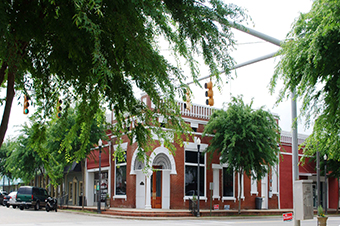
Local governments strengthen their local historic preservation efforts by achieving Certified Local Government (CLG) status from the National Park Service (NPS).
NPS and State governments, through their State Historic Preservation Offices (SHPOs), provide valuable technical assistance and small matching grants to hundreds of diverse communities whose local governments are endeavoring to keep for future generations what is significant from their community's past. In turn, NPS and States gain the benefit of local government partnership in the national historic preservation program.
Another incentive for participating in the CLG program is the pool of matching grant funds SHPOs set aside to fund CLG historic preservation sub-grant projects--at least 10% of the State's annual Historic Preservation Fund (HPF) grant allocation. Grant funds are distributed through the HPF grant program, administered by NPS and SHPOs.
Currently, Alabama has 35 Certified Local Governments (CLGs), which are cities with locally established historic preservation commissions meeting AHC and NPS standards. These communities put a priority on identifying, protecting and promoting their historic places. Many of these cities place special regulations on development in their historic neighborhoods and downtowns. They host events and presentations to educate people on
historic preservation practices and issues. Local commission members attend state and national training to learn about programs to assist with community development efforts. City governments rely on commission members to help with rehabilitation projects for important community buildings and public spaces. They also support publications and website resources to promote tourism, business development and reinvestment in historic districts. CLGs can compete for annual grant funds to assist with these activities.